
Move to the cloud can be highly complex and challenging. However, the emergence of Kubernetes has helped overcome many cloud migration challenges.
Kubernetes, also known as Kubes or K8s, is a technology that enables organizations to reliably deploy and scale applications on par with the market demand, seamlessly roll out new features, and optimize cloud usage effectively. Since it was open-sourced in 2014, Kubernetes has become a flexible solution to move legacy applications to the cloud and realize ROI.
Vindicating this observation is the “State of Kubernetes 2020 Report,” conducted by Dimensional Research and VMware, which concluded that K8s adoption had skyrocketed significantly from just 27% in 2018 to 48% in 2020.
Having surveyed 247 IT professionals using Kubernetes in companies with 1,000 or more employees, the report outlined key findings concerning four sections, namely:
- It’s still early
- People come first
- Bumps on the road to success
- Kubernetes is worth it
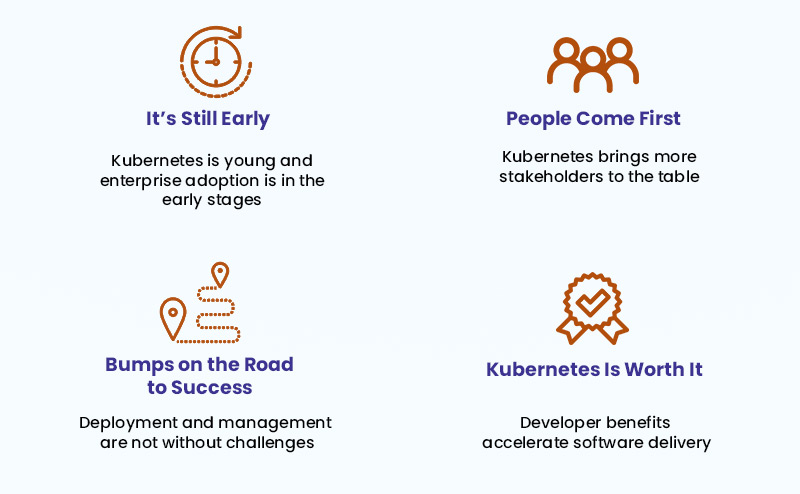
Key findings from State of Kubernetes 2020 Report for each section:
1) It’s Still Early
Despite being in demand, Kubernetes is yet to mature. It is still young, and technology the adoption is in an early stage. The key takeaways from the early adopters are:
Some key findings include:
- 60% of respondents are running less than half of the containerized workloads on Kubernetes
- 57% are operating less than 10 Kubernetes clusters
- 59% are running Kubernetes in production
- 20% of those having K8s in production have 50 or more clusters
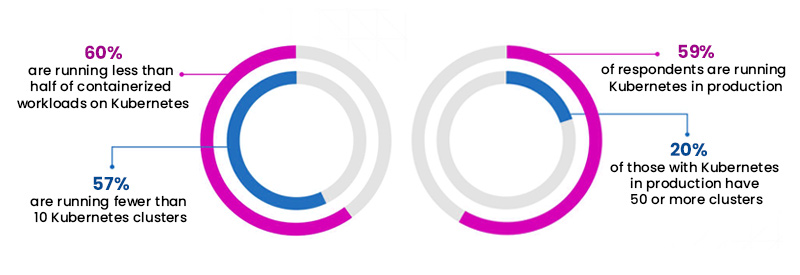
These numbers, which indicate a decent appetite for Kubes, show that the tech’s maximum potential is yet to be exploited by most.
2) People Come First
Despite the level of automation that Kubes brings in, the report observed that people are still in the driver’s seat. The report has revealed who exactly is involved in the decision-making of moving to Kubernetes.
- 83% of respondents reported that two or more teams are involved in selecting a Kubernetes distribution
- 38% of the time, developers are main decision-makers when Kubernetes is deployed only for development
- 23% of the time, infrastructure teams are the main decision-makers for deploying Kubernetes in production environments
3) Bumps of the Road to Success
Although Kubernetes offers a host of benefits, it also brings with it its own set of challenges. The report has uncovered the hurdles the enterprises encounter during and after Kubernetes’ adoption.
- 70% of respondents cited lack of experience and expertise as the top hindrance for Kubernetes deployment
- 67% cited lack of experience and expertise as the main management challenge
4) Kubernetes is Worth it
Despite the early adoption challenges and skill gaps, it’s evident that organizations are moving forward with Kubernetes to accelerate software development.
However, the report reveals a significant disconnect between C-suit executives and developers regarding impediments to developer productivity.
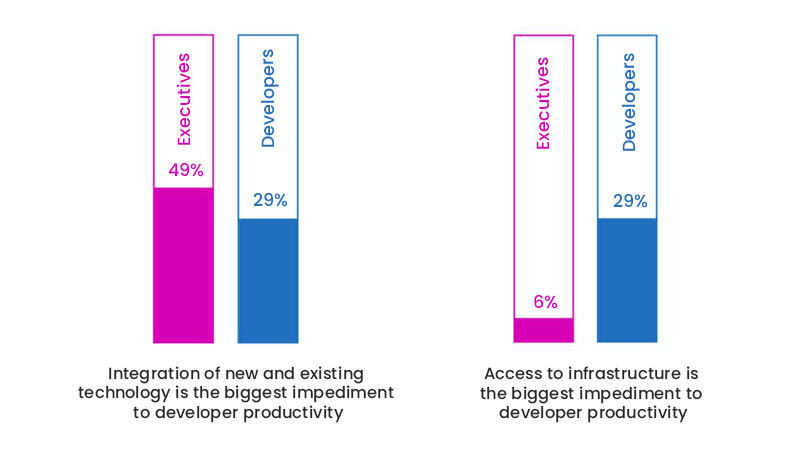
However, the report reveals a significant disconnect between C-suit executives and developers over impediments to developer productivity.
- 49% of executives cited the integration of new and existing technology as the foremost hurdle to developer productivity, while only 29% of developers concurred with the executives’ observation
- 29% of developers cited access to infrastructure as a top hindrance to developer productivity, in contrast only 6% of executives thought the same
How Kubernetes Benefits Multiple Stakeholders?
In the survey, 95% of the respondents reported they witnessed clear benefits from adopting Kubernetes.
- 56% cited improved resource utilization as the top benefit
- 53% choose shortened software development cycles
- 50% selected containerized monolithic applications
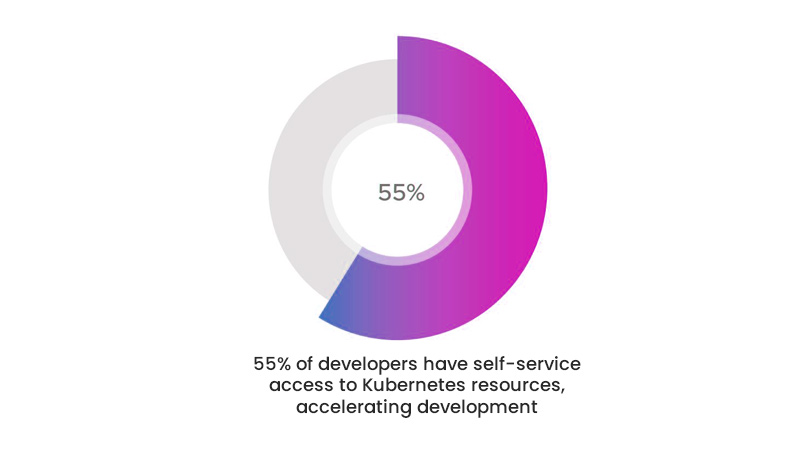
Although organizations are facing many challenges with Kubernetes integration, the report’s findings substantiate that building expertise and working with Kubes is worth the effect.
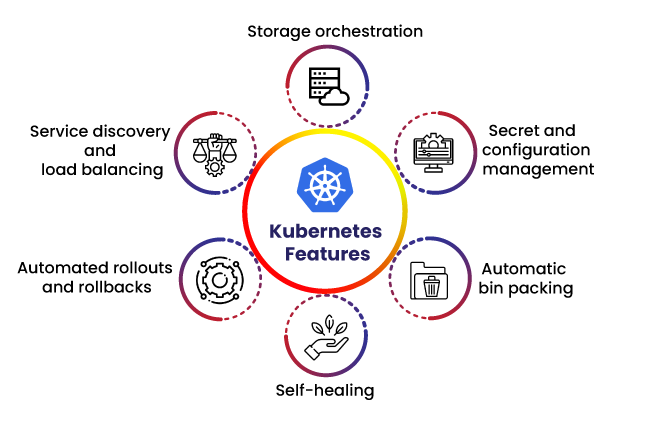
To overcome the impediments, organizations ought to partner with the Kubernetes experts like Veritis to help with the solution selection. Veritis can also help with deployment and management, while understanding and helping balance competing IT priorities with business objectives.
More Articles:

